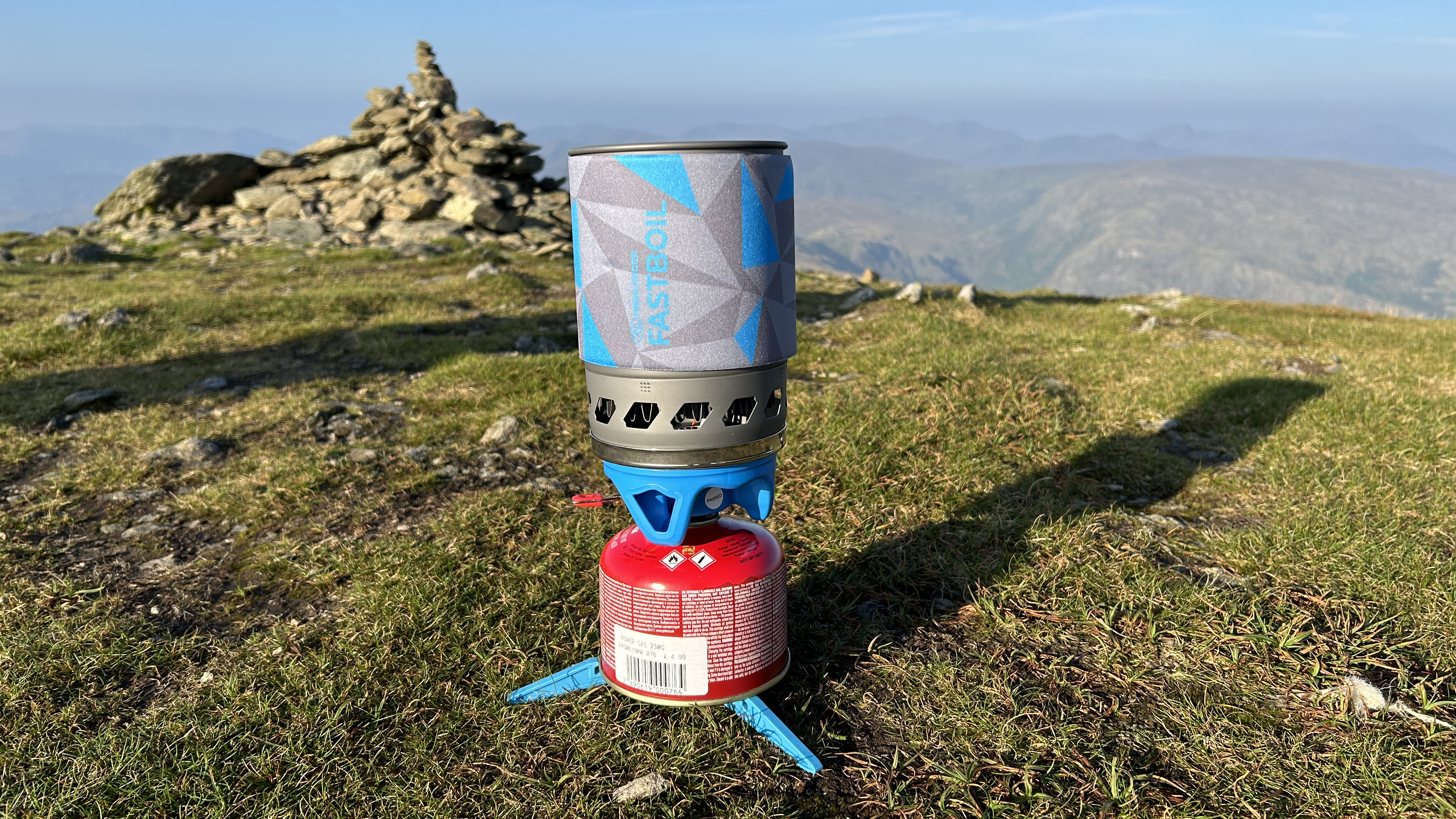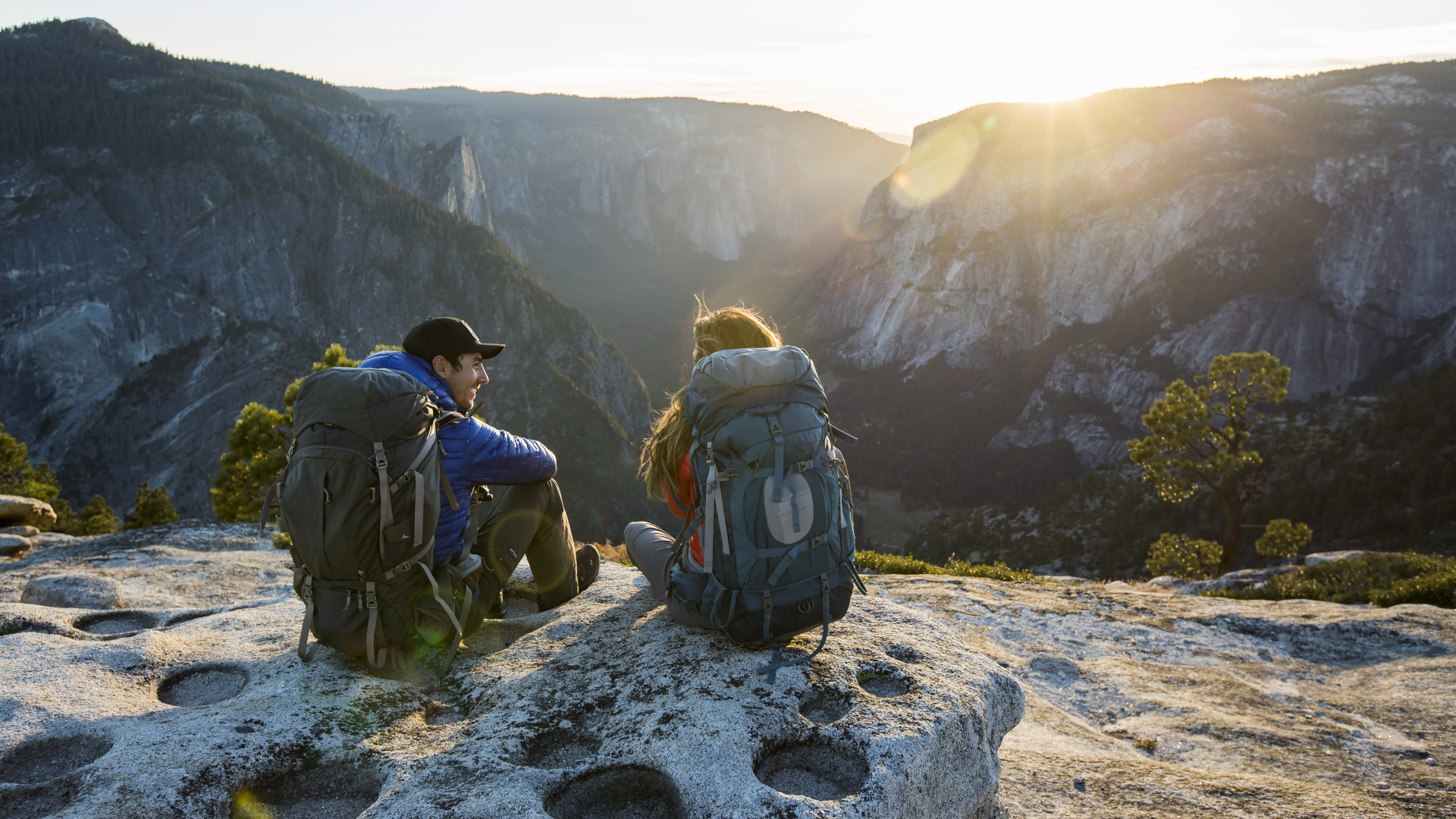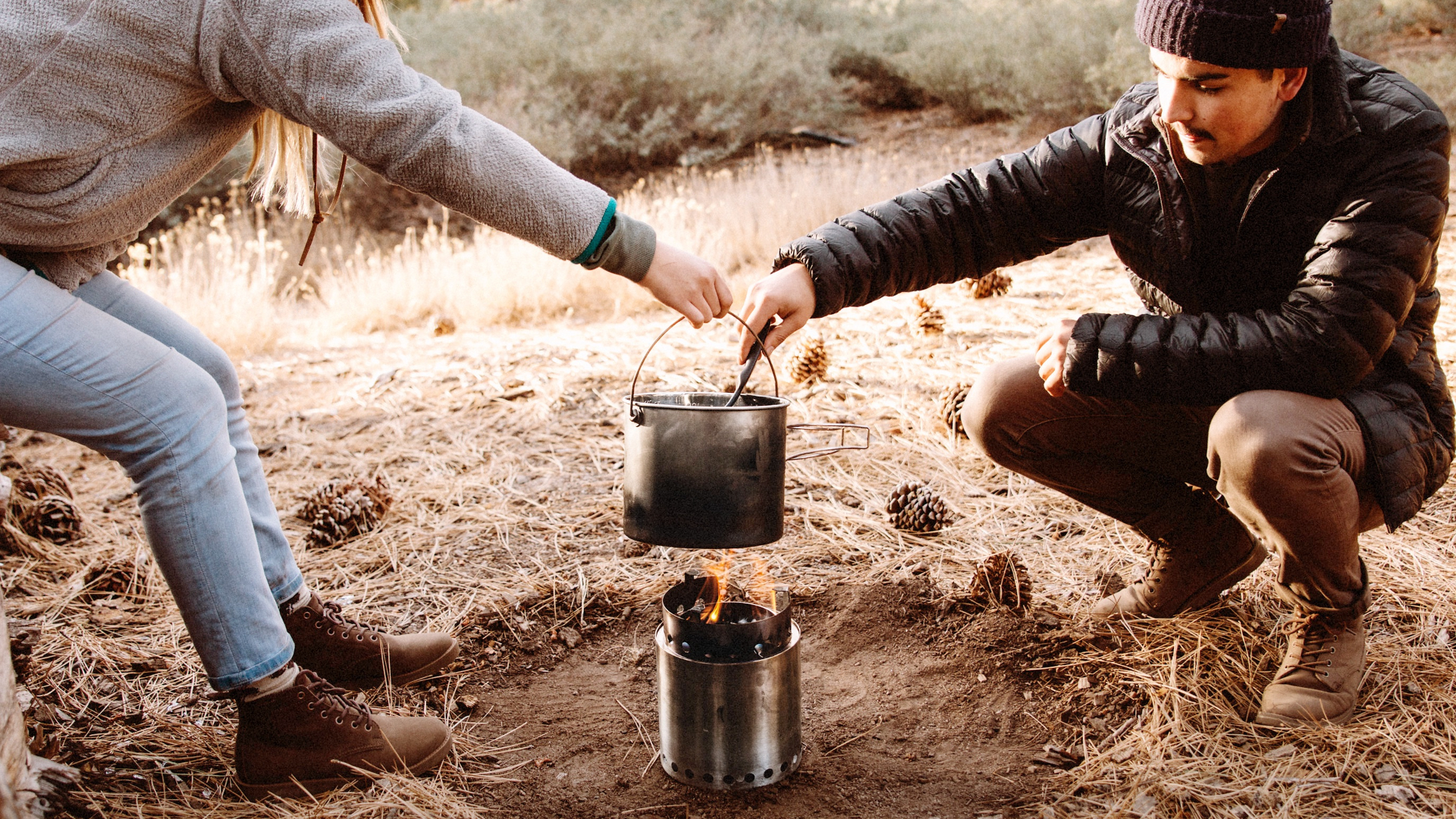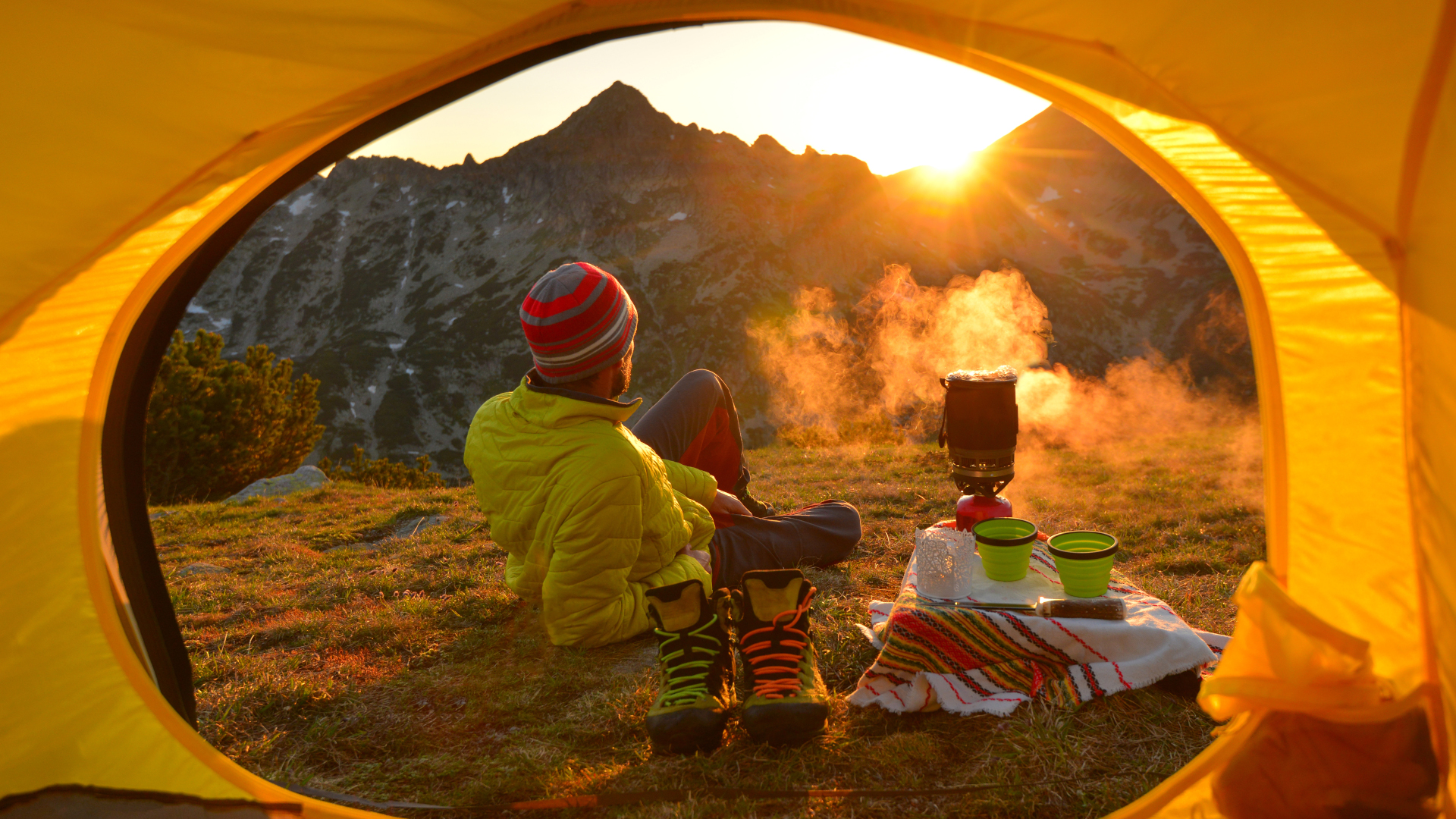Butane camping stoves vs propane: which is best?
We consider whether butane or propane is best, to help you understand the differences and choose the optimum stove for your adventures

Butane camping stoves vs propane camping stoves: which are the best choice? The two widely available camping stove fuels each has its own advantages and disadvantages and which stove you choose will have a lot to do with the kind of adventures you have in mind. However, price and environmental sustainability will also play a big part in the decision.
To help you consider which fuel is best and, therefore, what kind of stove the invest in, we asked one of our camping experts to look at the pros and cons of each.
The verdict
Whether or not a propane stove or a butane stove is best depends on what you need it for.
In terms of weight of fuel and canister, if you’re going backpacking and looking to keep things ultralight, butane is the clear winner.
However, if you’re expecting extremely cold temperatures or high altitude, propane provides better performance.
Propane just about has the edge on price and availability, though there's little to choose between them. Propane is also more sustainable if you refill your existing canister, as opposed to butane, where you'll need to buy a new canister each time.
One solution is to have two camping stoves and take the best one for the trip in question, but if you’re looking for an all-rounder, you’ll probably want to go with propane since it’s the most functional under different conditions.
All the latest inspiration, tips and guides to help you plan your next Advnture!
| Header Cell - Column 0 | Butane | Propane |
|---|---|---|
| Weight | As it's stored at low pressures, it can be carried in aluminum canisters, which are much lighter. | Propane is stored at high pressure, which requires a much tougher, and heavier, canister to transport it. |
| Cost | Generally slightly more expensive and refills are harder to come by. | Generally slightly cheaper and canisters may also be refillable. |
| Performance | Negligible difference in performance, though not as strong in cold conditions or high altitudes. | Negligible difference in performance, though better in cold temperature or high altitude. |
| Availability | Widely available at camping and outdoor stores. | Widely available at camping and outdoor stores, though slightly more so than butane thanks to its year-round suitability. |
| Sustainability | You usually have to buy a new canister rather than refilling the one you've already got. | As you can refill propane canisters, there's less waste than with butane. |
Meet the expert

With the Scottish Highlands on her doorstep and the nation's access laws meaning she can pretty much pitch where she wants, Julia is blessed with an almost unrivalled camping playground. An experienced camper and one of our main experts, she's often out in the backcountry with herds of deer testing the latest kit.
Weight

- Weight difference between gases is negligible
- Propane has to be stored at high pressure, leading to heavier canisters
- Aluminum butane canisters are considerably lighter
Of course, if you’re car camping then weight isn’t too important, but naturally if you’re backpacking or even ultralight camping, every ounce in your pack matters. Now, gases aren’t known for being particularly heavy and while propane is slightly lighter, it’s not really the weight of the gas that matters for backpacking so much as the container it comes in.
Propane is stored at high pressure, which requires a very tough canister, usually made of stainless steel. Even a small canister meant for backpacking can weigh from seven ounces to more than a pound. Butane, meanwhile, is stored at low pressure and it’s safe to store in an aluminium canister which is considerably lighter. Some butane fuel for backpacking even comes in a canister that looks like a small bottle of hairspray and doesn’t weigh much more than an ounce. Of course, these two examples contain different amounts of fuel, but basically if you’re looking to keep things light, you’ll want to go with butane.
Cost

- Propane is generally slightly cheaper
- Propane is also refillable, whereas you need to buy a fresh butane canister each time
Comparing the two cost-wise is a bit like comparing apples and oranges since they come in different sizes containing differing amounts of fuel and gas prices vary according to the market. But setting aside the fluctuating costs of gas and simply looking at the question of retail price from a camping perspective, a glance at the pricing of the two in most major outdoor retailers generally shows propane to be a bit cheaper. When you’re holding a canister of each type of fuel in each hand, the price differential might seem largely negligible i.e. within a dollar. But if you’re thru-hiking and really working with a tight budget? You might want to consider propane.
Also, while the canister that the fuel comes in will be more expensive for propane, it may also be refillable, whereas butane refills are harder to come by so you’re paying for a new canister each time.
Energy performance

- The difference in performance is negligible for normal camping purposes
We’re basically including this category to let you know that you can ignore it. The different densities of each fuel mean they behave differently and in different amounts and at different temperatures, one may be more efficient than the other. Overall though, while it might matter for large-scale industrial purposes, when it comes to using them with a camping stove, the difference isn’t big enough for this to sway your decision one way or the other and here, other factors come into play like your stove and outside temperature. If you’re looking for really good energy performance, you’re better off looking at the stove in question than the fuel required.
Availability

- Both are widely available
- Propane slightly more so as it’s better for year-round use
Both butane and propane are widely available at camping and outdoor stores, though you’ll usually see more propane on the shelves than butane because it’s better for all-seasons and therefore most brands have focused on making it more compatible with different types of stoves. Propane therefore has the slight edge but if you’re committed to butane, you shouldn’t have a problem finding refills for your burner.
Sustainability

- You can refill propane canisters, meaning there’s less waste than with butane
Speaking of refills, if you're car camping and carrying a big canister of propane, you’ll be able to refill it at many gas stations and grocery stores which is much cheaper than buying a whole new canister and better for the environment. Butane canisters, on the other hand, are not designed to be refilled so you’ll buy a new one each time and generate more waste.
Frequently asked questions
Here are a few frequently asked questions when it comes to butane camping stoves vs propane camping stoves.
Can you use either butane or propane on the same stove?
It’s important to know that butane and propane fuel canisters are not interchangeable, as the attachments on the stoves will be different. So, once you’ve chosen a camping stove, you’re committed to the fuel that it's compatible with.
What kind of fuel is best for backpacking?
Generally speaking, butane is better for backpacking and wild camping because it can be stored in aluminum canisters. These are much lighter than the tough, heavier propane equivalents.
Do butane and propane blends exist?
Some brands make a blend of isobutane and propane. As an example, Jetboil's JetPower is one such fuel, which combines propane's cold weather performance with the lower pressure of butane. This means it can be stored in a lighter canister than standard propane.
Julia Clarke is a staff writer for Advnture.com and the author of the book Restorative Yoga for Beginners. She loves to explore mountains on foot, bike, skis and belay and then recover on the the yoga mat. Julia graduated with a degree in journalism in 2004 and spent eight years working as a radio presenter in Kansas City, Vermont, Boston and New York City before discovering the joys of the Rocky Mountains. She then detoured west to Colorado and enjoyed 11 years teaching yoga in Vail before returning to her hometown of Glasgow, Scotland in 2020 to focus on family and writing.

